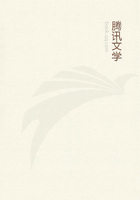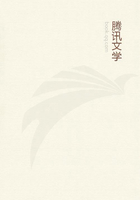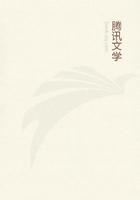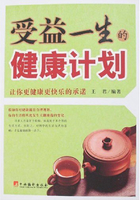The influence which the Father Inquisitor of a Dominican monastery was able habitually to exercise in the city where it was situated, was in the latter part of the fifteenth century just considerable enough to hamper and irritate cultivated people, but not strong enough to extort any lasting fear or obedience.It was no longer possible to punish men for their thoughts, as it once was, and those whose tongues wagged most impudently against the clergy could easily keep clear of heretical doctrine.Except when some powerful party had an end to serve, as in the case of Savonarola, or when there was a question of the use of magical arts, as was often the case in the cities of North Italy, we seldom read at this time of men being burnt at the stake.The Inquisitors were in some instances satisfied with the most superficial retraction, in others it even happened that the victim was saved out of their hands on the way to the place of execution.In Bologna (1452) the priest Niccolo da Verona had been publicly degraded on a wooden scaffold in front of San Domenico as a wizard and profaner of the sacraments, and was about to be led away to the stake, when he was set free by a gang of armed men, sent by Achille Malvezzi, a noted friend of heretics and violator of nuns.The legate, Cardinal Bessarion, was only able to catch and hang one of the party; Malvezzi lived on in peace.
It deserves to be noticed that the higher monastic orders-- e.g.
Benedictines, with their many branches--were, notwithstanding their great wealth and easy lives, far less disliked than the mendicant friars.For ten novels which treat of 'frati' hardly one can be found in which a 'monaco' is the subject and the victim.It was no small advantage to these orders that they were founded earlier, and not as an instrument of police, and that they did not interfere with private life.They contained men of learning, wit, and piety, but the average has been described by a member of it, Firenzuola, who says: 'These well-fed gentlemen with the capacious cowls do not pass their time in barefooted journeys and in sermons, but sit in elegant slippers with their hands crossed over their paunches, in charming cells wainscoted with cyprus-wood.And when they are obliged to quit the house, they ride comfortably, as if for their amusement, on mules and sleek, quiet horses.They do not overstrain their minds with the study of many books, for fear lest knowledge might put the pride of Lucifer in the place of monkish simplicity.'
Those who are familiar with the literature of the time, will see that we have only brought forward what is absolutely necessary for the understanding of the subject.That the reputation attaching to the monks and the secular clergy must have shattered the faith of multitudes in all that is sacred is, of course, obvious.
And some of the judgements which we read are terrible; we will quote one of them in conclusion, which has been published only lately and is but little known.The historian Guicciardini who was for many years in the service of the Medicean Popes, says (1529) in his 'Aphorisms': 'No man is more disgusted than I am with the ambition, the avarice and the profligacy of the priests, not only because each of these vices is hateful in itself, but because each and all of them are most unbecoming in those who declare themselves to be men in special relations with God, and also because they are vices so opposed to one another, that they can only co-exist in very singular natures.Nevertheless, my position at the Court of several Popes forced me to desire their greatness for the sake of my own interest.But, had it not been for this, I should have loved Martin Luther as myself, not in order to free myself from the laws which Christianity, as generally understood and explained, lays upon us, but in order to see this swarm of scoundrels (questa caterva di scelerati) put back into their proper place, so that they may be forced to live either without vices or without power.'
The same Guicciardini is of opinion that we are in the dark as to all that is supernatural, that philosophers and theologians have nothing but nonsense to tell us about it, that miracles occur in every religion and prove the truth of none in particular, and that all of them may be explained as unknown phenomena of nature.The faith which moves mountains, then common among the followers of Savonarola, is mentioned by Guicciardini as a curious fact, but without any bitter remark.
Notwithstanding this hostile public opinion, the clergy and the monks had the great advantage that the people were used to them, and that their existence was interwoven with the everyday existence of all.This is the advantage which every old and powerful institution possesses.
Everybody had some cowled or frocked relative, some prospect of assistance or future gain from the treasure of the Church; and in the centre of Italy stood the Court of Rome, where men sometimes became rich in a moment.Yet it must never be forgotten that all this did not hinder people from writing and speaking freely.The authors of the most scandalous satires were themselves mostly monks or beneficed priests.
Poggio, who wrote the_Facetiae, was a clergyman; Francesco Berni, the satirist, held a canonry; Teofilo Folengo, the author of the_Orlandino, was a Benedictine, certainly by no means a faithful one; Matteo Bandello, who held up his own order to ridicule, was a Dominican, and nephew of a general of this order.Were they encouraged to write by the sense that they ran no risks.Or did they feel an inward need to clear themselves personally from the infamy which attached to their order? Or were they moved by that selfish pessimism which takes for its maxim, 'it will last our time'.Perhaps all of these motives were more or less at work.In the case of Folengo, the unmistakable influence of Lutheranism must be added.

